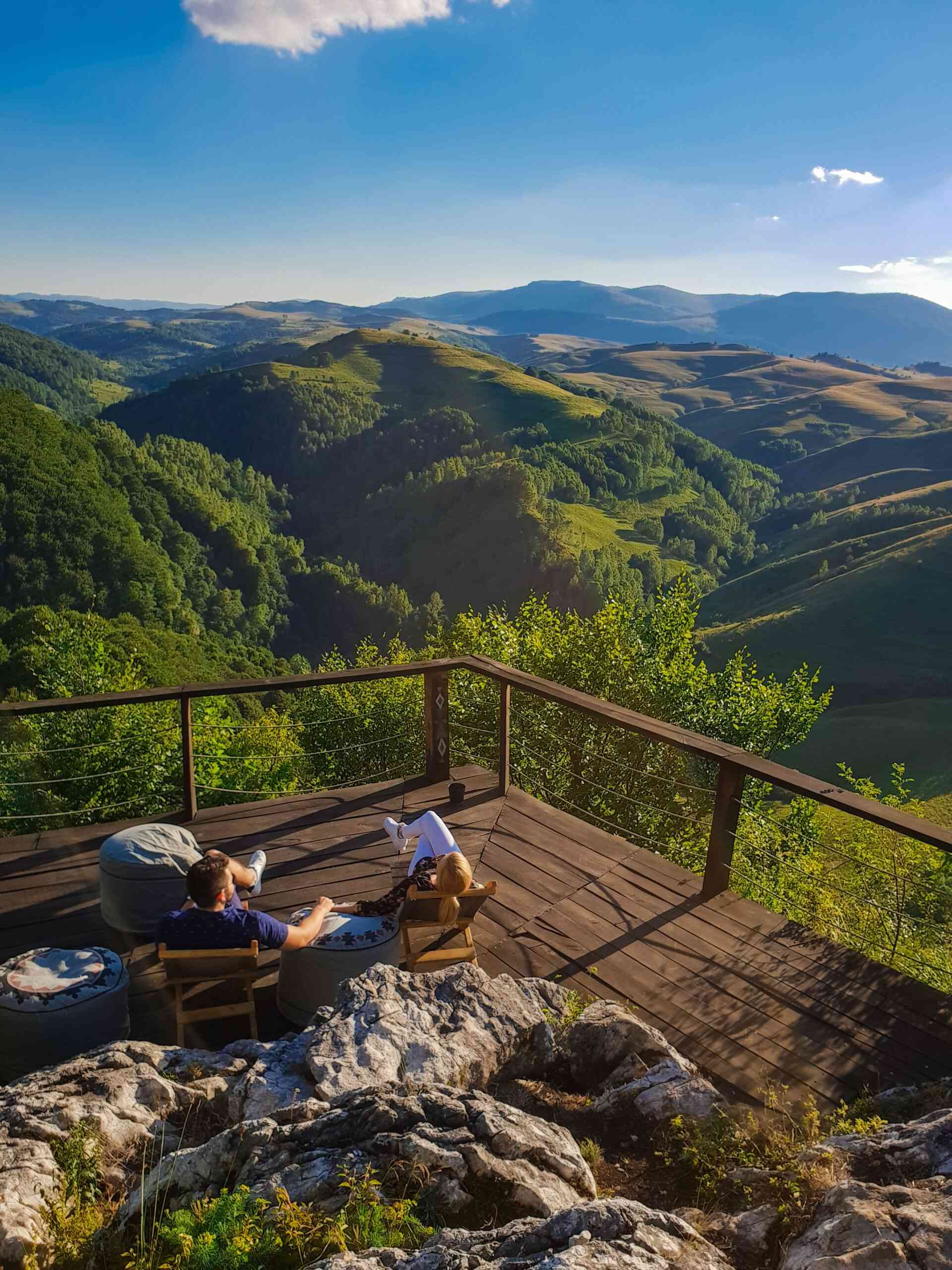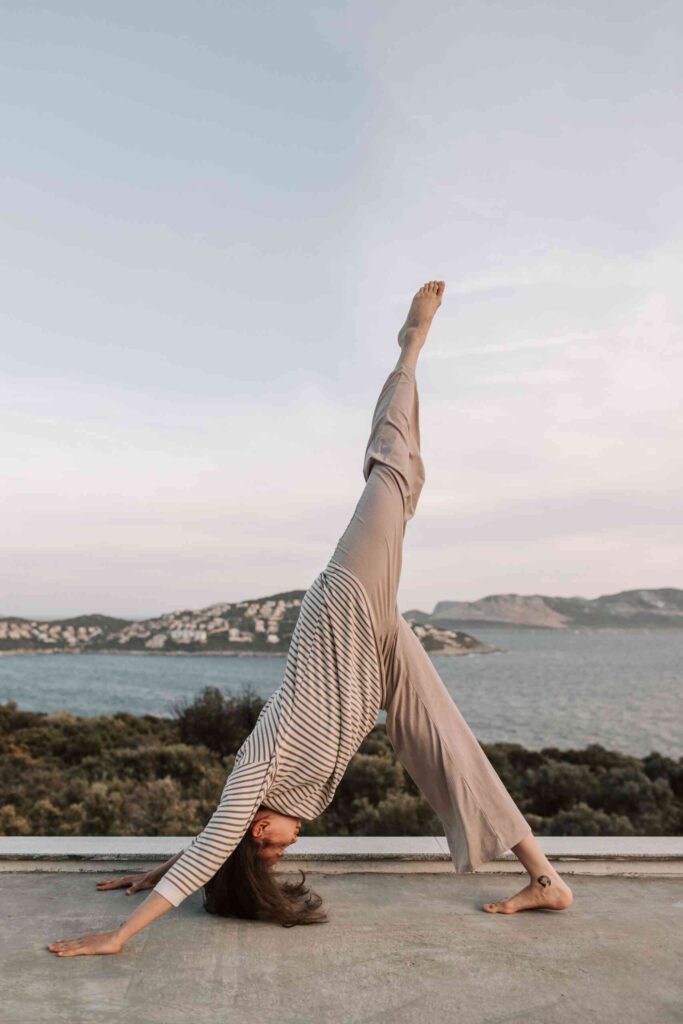Science
Hidden Depths: Thousands of Unknown Viruses Found in the Dragon Hole
16 February 2026

Holidays are often considered the highlight of the year... aren’t they? For the majority of us, the paramount objective during holidays is to unwind and rejuvenate. However, this objective is not easily attainable for everyone. Holidays and journeys are often accompanied by a combination of stress, expectations, and, of course, delightful, memorable moments shared with close ones. This amalgamation of elements complicates the process of naturally having a gratifying holiday.
In recent times, vacation and traveling, particularly the variant known as mass tourism, has garnered negative publicity. Despite this unfavorable perception, Polish citizens exhibit a strong inclination towards vacationing. Data from the Central Statistical Office for the year 2022 reveals that 35.4 million tourists availed themselves of overnight accommodation facilities. Concurrently, the number of Polish inhabitants aged 14 and above who partook in a minimum of one private tourist excursion last year amounted to 19.1 million, a surge of 12.5% compared to 2021, constituting 59.1% of the population in that age bracket.
A simple etymological analysis can reveal a new dimension to vacations. The English word ‘leisure,’ or the French ‘loisir,’ both denoting rest and freedom from work, translates to ‘σχολή’ or ‘skhole’ in Greek. This word is rendered as ‘schola’ in Latin, from which the English ‘school’ is derived. Thus, the term for a place of education is rooted in a word signifying ‘rest.’ This could be interpreted to mean that education is a form of recreation. A more nuanced explanation is provided by the 20th-century philosopher Josef Pieper, who posited that leisure is the optimal time for learning and discovery. Building on this idea, American journalist and Harvard Business School lecturer Arthur C. Brooks contends in his article ‘How to have your most fulfilling vacation ever’ that converting leisure time into a period of learning can transform vacations into the most rewarding time of the year.
The sense of well-being derived from learning is not as instinctive as the pleasure obtained from consuming chocolate. In actuality, learning necessitates a certain level of sacrifice. A 2011 study revealed that activities aimed at boosting competence might momentarily decrease happiness but substantially enhance overall well-being in the long run. This observation rings true: after mastering a new poem or song lyrics, one can revel in the joy of knowledge. In this respect, learning mirrors exercise: it may be momentarily painful, but it is ultimately gratifying.
The foundation of deriving the most satisfaction from learning lies in intrinsic motivation, or the pursuit of knowledge for one’s own sake. A 2014 study by neurologists revealed a link between this form of learning and the brain’s reaction to curiosity. High mid-brain activity during such pursuits indicated a surge in dopamine release while exploring topics that intrigued the study participants. Simply put, quenching curiosity by delving into subjects that pique our interest yields hormonal benefits substantiated by science.
How does one plan a guilt-free vacation? Is it advisable to pack it with a host of activities, or is it better to indulge in complete idleness? Is a week the minimum requisite, or would frequent, brief escapades suffice? A 2010 study suggested that for many, the act of planning a vacation is more pleasurable than the vacation itself. Jeroen Nawijn, a lecturer at Breda University of Applied Sciences in the Netherlands, analyzed the behavior of 1,530 Dutch adults. He discovered that among the 974 individuals who vacationed, the highest happiness levels were recorded in the lead-up to the trip, specifically during the planning and offer-reviewing stages.
Drawing from our understanding of the brain, coupled with recent research, we can devise a straightforward and efficacious vacation-planning strategy. It involves pinpointing a subject or activity that deeply fascinates us and dedicating our focus to it. The chosen task or activities should be sufficiently demanding to present an intellectual or physical challenge.
“Participating in activities that fully engross us is essential for a satisfying vacation,” states Elizabeth W. Dunn, a psychology professor at the University of British Columbia who studies consumption and happiness. This challenges the stereotypical perception of a vacation as a period for relaxation and reducing all activities. However, this doesn’t necessarily mean one should immediately sign up for an intensive yoga course or mountain climbing. Being engaged doesn’t have to involve physical activity; simply immersing oneself in local culture can be advantageous. Consider enrolling in a cooking class instead of dining out, or join a tour of the old town led by a historian, rather than spending time by the pool.

Travel and spending leisure time are as much personal matters as they are universal themes. Everyone wants to create wonderful memories, but in a time of overconsumption, travel has become just another item to thoughtlessly check off the annual to-do list. Additionally, tourism has morphed into an extension of 19th-century colonialism. Therefore, spending leisure time and planning vacations should not solely focus on exotic trips and the obsessive quest for untouched and highly original locations.
In her book “Flights,” Olga Tokarczuk seeks to defend the ethos of travel by imbuing it with anthropological significance. The Nobel laureate poses a straightforward question to the reader/traveler: “Why did you come here?” This question prompts a consideration of purpose and meaning, aligning with the notion that “I become what I participate in. I am what I observe.” For Tokarczuk, reflecting on the journey and acclimatization to new surroundings is what renders leisure time purposeful and offers respite in today’s world.
This principle is also foundational to the model of a learning-filled vacation discussed earlier. Enforced relaxation and entertainment is a frequent mistake, often yielding results contrary to those intended. Similar to how children will learn more quickly and effectively if we allow them to find joy in learning rather than compelling them to study relentlessly, merely purchasing a vacation in a warm destination and anticipating a week by the hotel pool will unlikely result in relaxation or a detachment from work. Instead of passively awaiting a holiday nirvana, we should be proactive, embrace novel strategies for relaxation, and transform our vacations into periods of learning and new experiences.
Read more on Holistic News